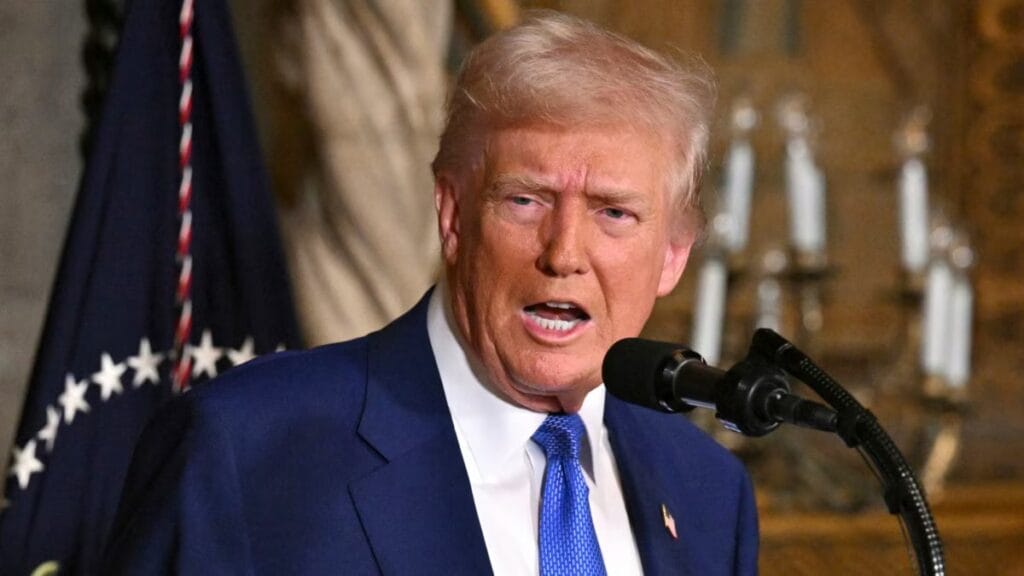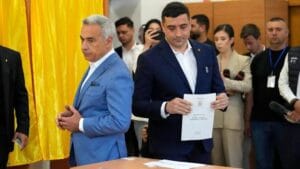Ukraine strikes minerals deal with U.S. as Trump signals shift in foreign aid
Ukraine has reached an agreement with the United States on a major minerals deal, a senior official in Kyiv told the BBC, calling it a “positive outcome” with “a number of good amendments.”

File Source: Google
Ukraine has reached an agreement with the United States on a major minerals deal, a senior official in Kyiv told the BBC, calling it a “positive outcome” with “a number of good amendments.”
While details remain scarce, media reports indicate that Washington has dropped its initial demand for $500 billion in potential revenue from Ukraine’s natural resources. However, firm security guarantees—one of Kyiv’s key demands—have not been included in the deal.
U.S. President Donald Trump confirmed that Ukrainian President Volodymyr Zelensky is expected in Washington this week to sign the agreement, despite recent heated exchanges between the two leaders. Without explicitly confirming the deal, Trump suggested it was tied to continued U.S. support for Ukraine’s war effort. “They’re very brave,” he said Tuesday. “But without the United States and its money and its military equipment, this war would have been over in a very short period of time.” Asked about future military aid, he responded, “Maybe until we have a deal with Russia… We need to have a deal, otherwise it’s going to continue.” He also hinted at a future peacekeeping force, saying it must be “acceptable to everyone.”
The agreement follows a tense standoff between Washington and Kyiv over mineral rights, with Trump pressuring Ukraine to grant access to its vast deposits of lithium, titanium, and rare earth metals in exchange for U.S. aid. Last week, he described Zelensky as a “dictator” and appeared to blame Ukraine, rather than Russia, for the war. Zelensky fired back, rejecting the $500 billion demand and accusing Trump of being trapped in a “disinformation space” created by Russia. “I can’t sell our state,” he said.
On Tuesday, Trump insisted the U.S. had already given Ukraine between $300 billion and $350 billion. “We want to get that money back,” he said. “We’re helping the country through a very, very big problem… but the American taxpayer now is going to get their money back plus.”
Ukraine’s Deputy Prime Minister Olha Stefanishyna, who led the negotiations, told the *Financial Times* that the minerals deal was “only part of the picture” and that U.S. officials viewed it as one element of a broader agreement. Ukrainian sources suggest Washington had to back away from its more extreme demands, but further negotiations will be needed to finalize details.
The agreement underscores a seismic shift in U.S. foreign policy under Trump. For more than 75 years—from the Marshall Plan to post-Cold War diplomacy—American aid was largely driven by strategic or humanitarian interests. Now, under Trump’s “America First” approach, assistance comes with explicit financial conditions. This deal with Ukraine sets a precedent, one likely to be replicated worldwide in the coming years.
Ukraine’s *Ukrainska Pravda* reported that the agreement is set to be signed by Ukrainian Foreign Minister Andrii Sybiha and U.S. Secretary of State Marco Rubio. In addition to mineral rights, the two nations have reportedly agreed to establish a reconstruction investment fund.
Ukraine holds an estimated 5% of the world’s critical raw materials, including 19 million tons of proven graphite reserves, a third of Europe’s lithium deposits, and significant rare earth metals used in military and high-tech industries. Before Russia’s full-scale invasion, Ukraine also produced 7% of the world’s titanium, crucial for aerospace and energy infrastructure.
On Tuesday, Russian President Vladimir Putin added a surprising twist, saying Moscow is open to offering the U.S. access to rare minerals, including those in Russian-occupied regions of Ukraine. Kyiv and its European allies, already unsettled by recent U.S.-Russia talks in Saudi Arabia, are increasingly wary that key decisions about the war—and Europe’s long-term security—could be made without their input.
According to Ukraine’s Economy Minister Yulia Svyrydenko, an estimated $350 billion worth of mineral resources remain in Russian-occupied territories, further complicating the economic stakes of the ongoing war.










